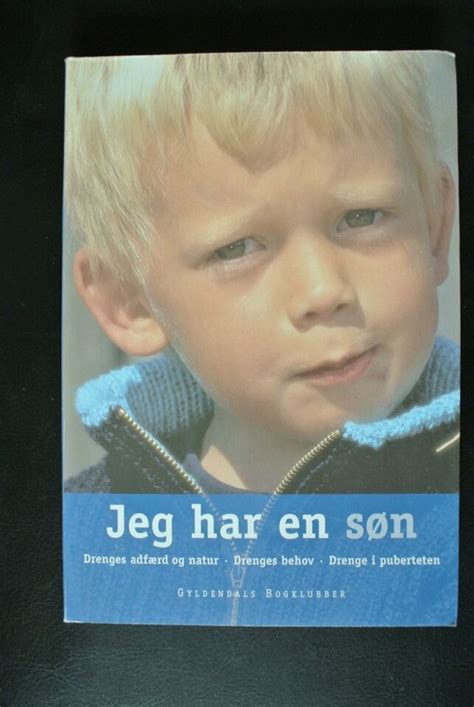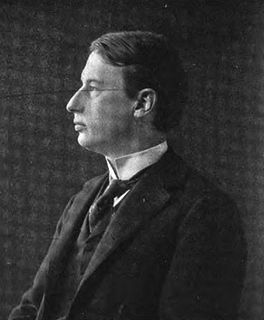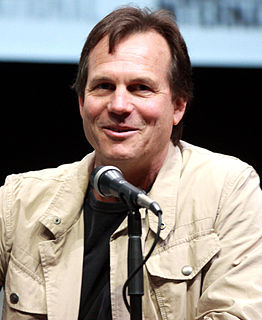Top 165 Punishments Quotes & Sayings - Page 3
Explore popular Punishments quotes.
Last updated on April 16, 2025.
Our heavenly Father is more liberal in His views, and boundless in His mercies and blessings, than we are ready to believe or receive; and at the same time more terrible to the workers of iniquity, more awful in the executions of His punishments, and more ready to detect in every false way, than we are apt to suppose Him to be.
You may do as you wish without fear of retribution. It may serve you, however, to be aware of consequences. Consequences are results. Natural outcomes. These are not at all the same as retributions, or punishments. Outcomes are simply that. They are what results from the natural application of natural laws. They are that which occurs, quite predictably, as a consequence of what has occurred.
Well aware that the opinions and belief of men depend not on their own will, but follow involuntarily the evidence proposed to their minds; that Almighty God hath created the mind free, and manifested his supreme will that free it shall remain by making it altogether insusceptible of restraint; that all attempts to influence it by temporal punishments, or burthens, or by civil incapacitations, tend only to beget habits of hypocrisy and meanness, and are a departure from the plan of the holy author of our religion.
Apart from selfish reasons, such as fear of punishments, fear of blame, of dishonour, etc, there remains only two motives that can stop (or prevent, "empâecher", Fr.) men from acting badly; the natural sense of commiseration (or "sympathy", - "commisération", Fr.) for one's fellow men - compassion, and the influence of education, by association of ideas ("par l'association d'idées", Fr.) - habit.
Almighty God hath created the mind free. All attempts to influence it by temporal punishments or burthens...are a departure from the plan of the holy Author of our religion...No man shall be compelled to frequent or support religious worship or ministry or shall otherwise suffer on account of his religious opinions or belief, but all men shall be free to profess and by argument to maintain, their opinions in matters of religion. I know but one code of morality for men whether acting singly or collectively.
Our measure of rewards and punishments is most partial and incomplete, absurdly inadequate, utterly worldly; and we wish to continue it into the next world. Into that next and awful world we strive to pursue men, and send after them our impotent paltry verdicts of condemnation or acquittal. We set up our paltry little rod to measure heaven immeasurable.
The idea that we would raise billions of sentient animals, treat them horribly, pollute our waterways with their waste, compromise the effectiveness of our antibiotics so that they grow faster, and then slaughter them with little regard to their suffering so that we can feed off their corpses, will seem to most people unthinkably cruel and barbarous - sort of in the way that we think of medieval punishments, or Europeans today think of the death penalty.
The promulgation of the great doctrines of religion, the being, and attributes, and providence of one Almighty God: the responsibility to him for all our actions, founded upon moral freedom and accountability; a future state of rewards and punishments; the cultivation of all the personal, social, and benevolent virtues-these these never can be a matter of indifference in any well-ordered community. It is, indeed, difficult to conceive how any civilized society can exist without them.
Let's say someone has experienced a violent trauma or betrayal: a child has been raped by a parent or has witnessed the destruction of someone he loves or has been so traumatized by the possibility of beatings and punishments that he's afraid to act. If the trauma is great enough, that person's life may become frozen, emotionally frozen even though he still gets up in the morning, is busy all day, and goes to bed at night. But there's this empty space that begins to fill with rage, rage toward everyone - the perpetrator, the people in the world who haven't suffered, even toward himself. (174)
Your service will be arduous, it will be painful and rigorous, and the slightest delinquencies will be requited immediately with corporal and afflicting punishments; hence, I must recommend to you prompt exactness, submissiveness, and total self-abnegation that you be enabled to heed naught but our desires; let them be your laws, fly to do their bidding, anticipate them, cause them to be born.
Fences, unlike punishments, clearly mark out the perimeters of any specified territory. Young children learn where it is permissible to play, because their backyard fence plainly outlines the safe area. They learn about the invisible fence that surrounds the stove, and that Grandma has an invisible barrier around her cabinet of antique teacups.
About belief or lack of belief in an afterlife: Some of you may know that I am neither Christian nor Jewish nor Buddist, nor a conventionally religious person of any sort. I am a humanist, which mean, in part, that I have tried to behave decently without any expectation of rewards or punishments after I'm dead.
O neglectful Nature, wherefore art thou thus partial, becoming to some of thy children a tender and benignant mother, to others a most cruel and ruthless stepmother? I see thy children given into slavery to others without ever receiving any benefit, and in lieu of any reward for the services they have done for them they are repaid by the severest punishments.
It is recorded how towards the end of the eighteenth century a Muslim visitor to England was taken to see the House of Commons at work. He later wrote of his astonishment at finding the that the British Parliament actually made laws and fixed punishments for their infraction - because unlike Muslims the English had not accepted a divine law revealed from heaven and therefore had to resort to such unsatisfactory expedients. Muslims still understand the expression 'the rule of law' very differently than do most Westerners.
But he alone having reached our deep corruption, he alone having taken upon himself our labors, he alone having suffered the punishments due for our impieties, having recovered us who were not half dead merely, but were already in tombs and sepulchers, and altogether foul and offensive, saves us, both anciently and now, by his beneficent zeal, beyond the expectation of any one, even of ourselves, and imparts liberally of the Father's benefits-he who is the giver of life and light, our great Physician and King and Lord, the Christ of God.
The moral issues with which Marcus struggles would be, as he points out, unchanged whether the universe were mechanical and devoid of meaning or value or ruled by deity or Providence; whether the will were in fact free or determined; whether there were or were not a future life, or any even fugitive rewards and punishments at all.
There's no specific punishment in the books of fiqh (Islamic laws) that relate to homosexuality per se. They apply to any illicit sexual relations, including prohibited heterosexual acts like adultery. And the punishments are strong, but they are legal fictions because they are impossible to prove. You need four witnesses to say they witnessed (sexual) penetration. In what circumstances are you going to find someone to testify to that?
Few white citizens are acquainted with blacks other than those projected by the media and the so--called educational system, whichis nothing more than a system of rewards and punishments based upon one's ability to pledge loyalty oaths to Anglo culture. The media and the "educational system" are the prime sources of racism in the United States.
We cannot escape the conclusion that because of performance in the pre-existence some of us are born as Chinese, some as Japanese, some as Indians, some as Negroes, some as Americans, some as Latter-day Saints. These are rewards and punishments, fully in harmony with His established policy in dealing with sinners and saints, rewarding all according to their deeds
Take the case of just actions; just punishments and chastisements do indeed spring from a good principle, but they are good only because we cannot do without them - it would be better that neither individuals nor states should need anything of the sort - but actions which aim at honor and advantage are absolutely the best. The conditional action is only the choice of a lesser evil; whereas these are the foundation and creation of good. A good man may make the best even of poverty and disease, and the other ills of life.
God does not cause our misfortunes. Some are caused by bad luck, some are caused by bad people, and some are simply an inevitable consequence of our being human and being mortal. living in a world of inflexible natural laws. The painful things that happen to us are not punishments for our misbehavior, nor are they in any way part of some grand design on God's part. Because the tragedy is not God's will, we need not feel hurt or betrayed by God when tragedy strikes. We can turn to Him for help in overcoming it, precisely because we can tell ourselves that God is as outraged by it as we are.
Society, and the family as its psycho social agent, has to solve a difficult problem: How to break a person's will without his being aware of it? Yet by a complicated process of indoctrination, rewards, punishments, and fitting ideology, it solves this task by and large so well that most people believe they are following their own will and are unaware that their will itself is conditioned and manipulated.
The perils, rewards, punishments, and fulfillments of an adventure must be real, or the adventure is only a shifting and heartless nightmare. If I bet I must be made to pay, or there is no poetry in betting. If I challenge I must be made to fight, or there is no poetry in challenging. If I vow to be faithful I must be cursed when I am unfaithful, or there is no fun vowing.
No truth is more clearly taught in the Volume of Inspiration, nor any more fully demonstrated by the experience of all ages, than that a deep sense and a due acknowledgment of the governing providence of a Supreme Being and the accountableness of men to Him as the searcher of hearts and righteous distributor of rewards and punishments are conducive equally to the happiness and rectitude of individuals and to the well being of communities.
Anyone who has fallen into fornication, adultery or any other such bodily impurity, should desist from this revolting filth and cleanse himself through confession, tears, fasting and the like. For God judges unrepentant fornicators and adulterers. He condemns them, dismisses them and consigns them to hell, unquenchable fire and other never-ending punishments, saying, 'Let the impure and accursed be taken away, lest they see and enjoy the glory of the Lord' (cf. Isa. 26:10 LXX).
Blessed, plainly, is that life which is not valued at the estimation of outsiders, but is known, as judge of itself, by its own inner feelings. It needs no popular opinions as its reward in any way; nor has it any fear of punishments. Thus the less it strives for glory, the more it rises above it. For to those who seek for glory, that reward in the shape of present things is but a shadow of future ones, and is a hindrance to eternal life, as it is written in the Scriptures: 'Truly I say to you, they have received their reward'
What kind of expression is this - "punishing Israel"? Are we a vassal state of yours? Are we a banana republic? Are we youths of fourteen who, if they don't behave properly, are slapped across the fingers? Let me tell you who this government is composed of. It is composed of people whose lives were spent in resistance, in fighting and in suffering. You will not frighten us with "punishments." He who threatens us will find us deaf to his threats. We are only prepared to listen to rational arguments. You have no right to "punish" Israel - and I protest at the very use of this term.
There are three points of doctrine the belief of which forms the foundation of all morality. The first is the existence of God; the second is the immortality of the human soul; and the third is a future state of rewards and punishments. Suppose it possible for a man to disbelieve either of these three articles of faith and that man will have no conscience, he will have no other law than that of the tiger or the shark. The laws of man may bind him in chains or may put him to death, but they never can make him wise, virtuous, or happy.
It may be observed in general that the future is purchased by the present. It is not possible to secure distant or permanent happiness but by the forbearance of some immediate gratification. This is so evidently true with regard to the whole of our existence that all precepts of theology have no other tendency than to enforce a life of faith; a life regulated not by our senses but by our belief; a life in which pleasures are to be refused for fear of invisible punishments, and calamities sometimes to be sought, and always endured, in hope of rewards that shall be obtained in another state.
I was a teenager when General Zia took power in the Pakistan; I was in my twenties when I went there during the late 1980s and I saw then not only the novel punishments that he was introducing - because they were novel, and this is again something that's very important to understand, it's only in the last thirty, forty years, since 1979 in fact, that these penalties have been revived anywhere in the world apart from Saudi Arabia.
Lead the people with administrative injunctions and put them in their place with penal law, and they will avoid punishments but will be without a sense of shame. Lead them with excellence and put them in their place through roles and ritual practices, and in addition to developing a sense of shame, they will order themselves harmoniously
After the survivor of the Spanish conquest has told his life's story he is convicted by the Inquisition: He posted no brief in defense or mitigation of his offenses, and when he was most solemnly advised by the Court President of the dire consequences he faced if found guilty, Juan Damasceno volunteered only one comment: "It will mean I do not go to the Christian heaven?" He was told that that would indeed be the worst of his punishments: that he would most assuredly not go to Heaven. At which, his smile sent a thrill of horror through every soul of the Court.
She died on a windy gray day in March when the sky was full of darting crows and the world lay prostrate and defeated after winter. Peter Lake was at her side and it ruined him forever. It broke him as he had not ever imagined he could have been broken. He would never again be young, or able to remember what it was like to be young. What he had once taken to be pleasures would appear to him in his defeat as hideous and deserved punishments for reckless vanity.
Therefore, the truly great man, although he does not injure others, does not credit himself with charity and mercy (these are natural to him). He does not seek gain, but does not despise his followers who do. He struggles not for wealth, but does not take credit for leaving it alone... The ranks and emoluments of the world are to him no cause for joy, it's punishments and shame no cause for disgrace.
South Africa is not Cameroon. It's a strong economy. I think they should be the first ones setting an example - improving the legal punishments for those that are involved, reinforcing the borders from every angle, meaning that even the diplomatic plane that lands in South Africa should not have the green light to leave without having the plane inspected. Obviously, those guys are often involved. If I get killed for saying that, so be it. That is the fact. There's way too many important people that are involved that don't want to change.
So far as I am concerned, poetry and every other art was and is and forever will be strictly and distinctly a question of individuality... If poetry is your goal, you've got to forget all about punishments and all about rewards and all about self-styled obligations and duties and responsibilities etcetera ad infinitum and remember one thing only: that it's you - nobody else - who determine your destiny and decide your fate. Nobody else can be alive for you; nor can you be alive for anybody else... There's the artist's responsibility; and the most awful responsibility on earth.
Schoolboy days are no happier than the days of afterlife, but we look back upon them regretfully because we have forgotten our punishments at school and how we grieved when our marbles were lost and our kites destroyed – because we have forgotten all the sorrows and privations of the canonized ethic and remember only its orchard robberies, its wooden-sword pageants, and its fishing holidays.
We are born knowing nothing and with much striving we learn but a little; yet all the while we are bound by laws that hearken to no plea of ignorance, and measure out their rewards and punishments with calm indifference. In such a state, humility is the virtue of men, and their only defense; to walk humbly with God, never doubting, whatever befall, that His will is good, and that His law is right.
People interpret things through their owns lens, just the way they do the Bible. You can find justification for just about everything in the Bible. I think man has got a great ego when it comes to his God, whatever that is. It just seems to me that someone who wants to take on God's punishment, it just seems a huge egoism to think that he should appoint himself to take care of God's punishments.
If any refuse to obey the common laws and orders of the ship concerning their common peace or preservation; if any shall mutiny or rise up against their commanders and officers; if any should preach or write that there should be no commanders or officers because all are equal in Christ, therefore no master or officers, no laws nor orders, nor corrections nor punishments - I say I never denied that in such cases, the commander may judge, resist, compel, and punish such transgressors according to their deserts and merits.
Out of the night that covers me,
Black is the pit from pole to pole,
I thank whatever gods may be
For my unconquerable soul.
In the fell clutch of circumstance
I have not winced nor cried aloud.
Under the bludgeonings of chance
My head is bloody, but unbowed.
Beyond this place of wrath and tears
Looms but the Horror of the shade,
And yet the menace of the years
Finds and shall find me unafraid.
It matters not how strait the gate,
How charged with punishments the scroll,
I am the master of my fate:
I am the captain of my soul.
Even apart from the image of a truly merciless God that contradicts everything we can assume from what Jesus says about the Either of the lost, can we be surprised at a time when retributive punishments without an opportunity of probation are being increasingly abandoned in education and penal justice, that the idea not only of a lifelong, but even eternal punishment of body and soul, seems to many people absolutely monstrous.
The soul sins therefore because, while aiming at good, it makes mistakes about the good, because it is not primary essence. And we see many things done by the Gods to prevent it from making mistakes and to heal it when it has made them. Arts and sciences, curses and prayers, sacrifices and initiations, laws and constitutions, judgments and punishments, all came into existence for the sake of preventing souls from sinning; and when they are gone forth from the body, Gods and spirits of purification cleanse them of their sins.










































